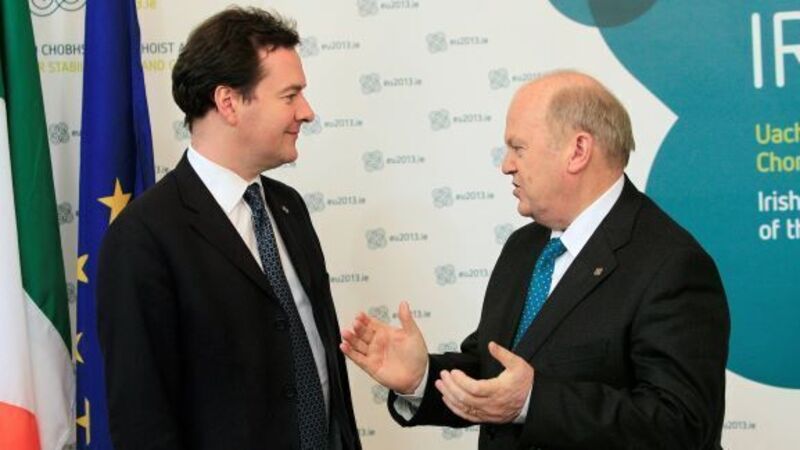EU fund to repay bank debt to taxpayer

The ministers also agreed to push out the €40bn EU bailout loan for another seven years to help spread more evenly repayments of the country’s massive debt.
Department of Finance officials said yesterday it “was one of the better days in our programme” as the finance ministers met in Dublin Castle.













